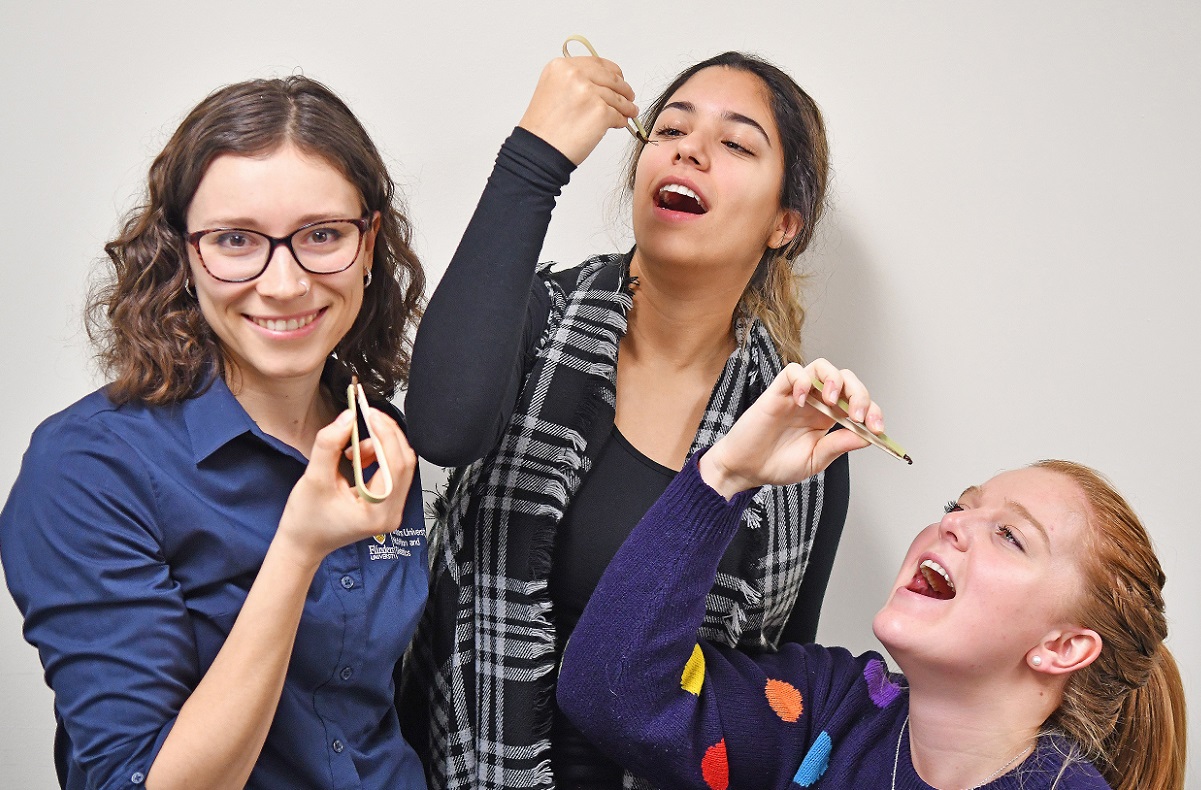
Crickets are on the Open Day menu for visitors to Flinders University as a tasty snack and an excellent example of a sustainable food source that is likely to become more prominent in Australia’s food future.
Insects have been eaten for thousands of years all around the world, but none of the 2,000 edible species are likely to be found in most Australian’s diets, other than through accidental ingestion.
Hannah Rohrlach, a dietitian and community engagement officer in nutrition and dietetics at Flinders University, argues that the concentrated protein source – up to 80% of some species’ macronutrients – should have a more prominent place in our diets, both now and in the future.
“Learning about sustainability and the food system is an important component of our nutrition degree as it’s an issue our graduates will face increasingly in the future, both in Australia and overseas,” she says.
Flinders University purchased 500 farmed crickets for the Open Days offering, which Miss Rohlach says are far more sustainable to produce than more common sources of animal protein.
“Insects are cold-blooded, so they need less energy inputs than mammals and they are very efficient at converting feed into body mass,” she says.
“Crickets only need around 2kg of food to produce 1kg of meat – that’s a lot less than cattle for example, which need to eat around 8kg of feedstock to produce 1kg of beef.”
Together with requiring less land and food than their mainstream alternatives, insects reproduce quickly and have short life-spans, meaning they can be grown and farmed very quickly. Miss Rohlach says a handful of primary producers in Australia are already working hard to sustainably farm insects and she expects this number to increase.
“Of course the biggest advantage is that they can also taste really good,” she says. “I’ve sampled a variety of insects myself and have used them with great success in both savoury and sweet dishes.”
Open Days are a valuable opportunity for potential students and interested members of the community to find or fine-tune their passions while getting a taste of what Flinders has to offer – including its innovative approach across study areas as diverse as medicine to media arts, business to biodiversity, or tourism to teaching.
The food theme continues through a number of activities this year, including a chocolate challenge to discover the therapeutic benefits of kinetic sand; or learning (and sampling) the science of speedier AND creamier ice-cream production using liquid nitrogen.
Visitors can also explore the many services that make Flinders unique, including its prize-winning hub and plaza and a wealth of dining options.
Zambrero, Subway, the University Tavern and other popular food and barista coffee options on campus will be open throughout the event, including Flinders’ flagship café and function centre, Alere – recently named South Australia’s best café at the annual SA Restaurant and Catering Awards For Excellence.
Deputy Vice-Chancellor (Students), Professor Clare Pollock, says: “Flinders is well known for its academic credentials as a top 2% global university, with 90% of our research ranked world-class or above.
“Our high-quality courses delivered by exceptional staff have seen Flinders University rated South Australia’s top university by employers.
“However, we recognise it’s not just the quality of learning that counts, but the experience a student has while learning, and our Open Days are a chance for potential students to experience the rich diversity of ‘life at Flinders,” Professor Pollock says.
Flinders’ world-leading facilities include a unique biology discovery centre with a multi-storey aviary, and a palaeontology lab where Open Day visitors can enjoy a hands-on experience with prominent palaeontologists and explore Flinders’ impressive collection of fossils up to 380-million-years-old.
Information on Flinders University’s Open Days, including registration and sessions, can be found at the Flinders University Open Days webpage.

